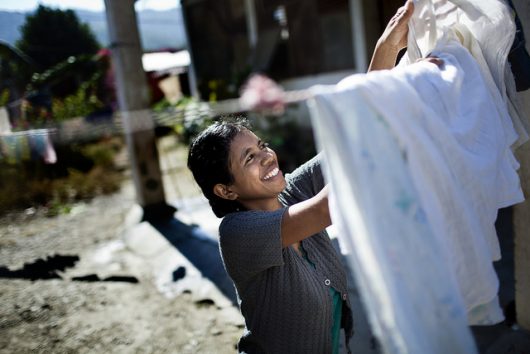Forging an Equal Future: Women’s Empowerment in Timor-Leste
 Women’s empowerment in Timor-Leste has been a serious agenda since the nation gained independence from Indonesian occupation in 2002. The occupation left 70 percent of the nation’s infrastructure in shambles and most of its inhabitants displaced.
Women’s empowerment in Timor-Leste has been a serious agenda since the nation gained independence from Indonesian occupation in 2002. The occupation left 70 percent of the nation’s infrastructure in shambles and most of its inhabitants displaced.
The small island suffers from one of the highest poverty rates in Asia as well as high levels of malnutrition. Women in Timor-Leste face challenges including poverty, gender-based violence and a lack of opportunities to be seen as community leaders.
The country’s government, as well as outside groups, is working to make sure that these issues are addressed. It is imperative that women’s empowerment in Timor-Leste is a top priority as the country seeks to provide a better future for all its inhabitants.
When Timor-Leste became an independent nation, a Gender and Constitution Working Group was formed with support from U.N. Women. This group was tasked with making sure that gender equality and women’s empowerment would be an integral part of Timor-Leste’s new constitution.
Because of the Gender and Constitution Working Group’s efforts, gender equality is included in Timor-Leste’s constitution, as well as a provision declaring that all citizens must be given equal opportunity in the social and political sphere. Due in no small part to these policies, Timor-Leste now has the largest percentage of women in political positions in the Asia Pacific Region.
A report by Mercy Corps found that increasing women’s empowerment in Timor-Leste helped to reduce childhood malnutrition and improve children’s health. Mercy Corps reported that when women have control over household finances, they are more likely to use funds to benefit themselves and their children. Similarly, when women have increased decision-making power they are more likely to make an expedient decision to get a sick child the care they need.
Australian Volunteers for International Development (AVID) is another organization that supports women’s empowerment in Timor-Leste. According to AVID senior program officer Alita Verdial, the nation’s “patriarchal society means that women do not have sufficient respect and resources to allow them to make their own decisions.” The organization is combatting these problems by providing volunteers to support local workers in areas such as human rights, education and economic empowerment.
Timor-Leste is a young country which faces many challenges. Women in the country do not yet have equal opportunity in the social, economic or political spheres. But key policies have been implemented to make sure women have equal protection under the law, and international programs are working to support the country’s women.
If Timor-Leste’s government and humanitarian organizations can continue to make women’s empowerment in Timor-Leste a priority, there is hope that the country will have a freer and more equitable future.
– Aaron Childree
Photo: Flickr
